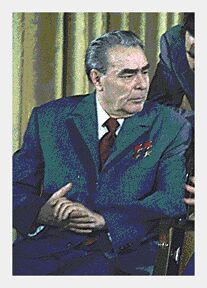Afghan war: victory or defeat?
 In the course of all these years, our politicians have been talking about the heroic fight against evil-spirited Afghani.
In the course of all these years, our politicians have been talking about the heroic fight against evil-spirited Afghani.

I have not fought in that war. I was still a freshmen at the Naval Academy when the war started. By the time the war ended, I have already earned my first rank. Afterwards, I served aboard a submarine in the North and in Gadjievo.
And in the course of all these years, our politicians have been talking about the heroic fight against evil-spirited Afghani. One might pose a reasonable question: why did it have to last for so long? One of our officers once mentioned something along the lines, “why bother with this miniscule piece of land?” “Why not just fire a rocket and blow the whole country up?” Some time later, the officer had been dragged to a special department. Afterwards, we learned that he had been fired.
Not so long ago, we received “The Red Star” (newspaper) with an “afghani” interview of the Army General Vladimir Alexandrovich Kruchkov, Head of the 1st Central Administrative Board (KGB) from 1974 and Head of KGB -1988-1991. A good interview indeed. Back in 1988, one could have been easily sent to a concentration camp in Kalima for such interview.
The following are excerpts from the interview:
-A decision to enter Afghanistan is surrounded by numerous legends. It is said that Yuri Vladimirovich Andropov had initiated the invasion. You have worked with Andropov for about 25 years, true?
-No. This isn’t true. Despite the fact that Andropov did indeed support the invasion, he was not the one to initiate the operation.
-Then who did?
-I would suggest approaching the issue more cautiously. One must first understand the following aspects: Brezhnev, Gromiko, Ustinov, Ponamarev, Andropov, and their friends have been discussing the issue for a long time. It wasn’t until we acquired a lot of information pertaining to the issue and thoroughly analyzed the situation that we decided to take the executive decision.
-When did you personally learn about a possibility of deploying troops to the region?
-By the end of November of 1979. At first, we tried to do everything to avoid the conflict. When I was a head of the reconnaissance department, on one of the committee's meetings, we had discussed a possibility of avoiding the armed conflict altogether…
-What committee?
-It was a specially designed Afghan committee. Gromiko was the head of the committee. Other members included Ustinov, Andropov, Ponamarev. Various people attended those meetings from time to time. Members have constantly been changing. I have been invited to attend. At times, Brezhnev himself would stop by at the committee and listen to discussions.
-By the way, how was Leonid Ilyich Brezhnev’s health back then?
-It varied. At times, he actively participated in various discussions,shared his personal opinions…In a few days, he would undergo drastic metamorphisms and look awfully ill…By 1979, his health had significantly weakened.
-So you are saying that all major decisions have been taken by a sick man? Is Brezhnev the one to blame?
-No. Of course, not. Even though he did thoroughly study the situation with Afghanistan, at times, he had quite interesting suggestions. I remember him saying once, “so you are looking to find a peaceful solution to the existing problem? I completely agree.” He suggested having general elections in order to introduce an element of initial democratic principles. This will definitely be very-well taken abroad, exclaimed he. Besides, it will be better to introduce democracy in such way, instead of imposing it by force. This was definitely an interesting suggestion, which we were able to realize in 1986.
-What do you think about the version that the United States has triggered deployment of Russian troops to Afghanistan?
What can you say about the role of the US in this conflict?
-Americans learned about the events only after everything had already been decided and our troops had already entered Kabul. Let me remind you one more time that we, Soviet people, have won the war in Afghanistan. We came out as victors of the military, political and psychological fight. There were talks however that the regime was not going to last for long…
The following are completely different opinions of generals (excerpts from books)
“Afghanistan turned out a complete fiasco not only for us. The US can also blame itself for its mistakes. It was them who initiated construction of military units of mojaheds on the Pakistani territory, who at the time were fighting with the Soviet Army. Washington supplied them with weaponry and forced to battle the “unfaithful” ones. It was American authorities who first opened the door to terrorists and allowed them to threaten people worldwide while hiding behind Islam.”
Lieutenant General V.A. Kirpichenko. “Reconnaissance: Faces and Personalities.”
“We could not provide a definite answer as to why the USSR decided to deploy all 100 000 troops, which clearly had not been enough to solve all the problems. It is a known fact that in the course of the Vietnam war, Americans sent their 500 000 army over there. Theatrical actions in Vietnam have taken place on a significantly smaller stage than those in Afghanistan…”
Lieutenant General N.S. Leonov, chief of Atlantic department of the KGB. “The Dark Times.”
The world is not a mere kaleidoscope, where small pieces of a mosaic roll freely, independent of each other. The world looks more like a mosaic where every single piece is firmly attached to each other.
Andrei Mikhailov
Source: RedStar
Subscribe to Pravda.Ru Telegram channel, Facebook, RSS!

